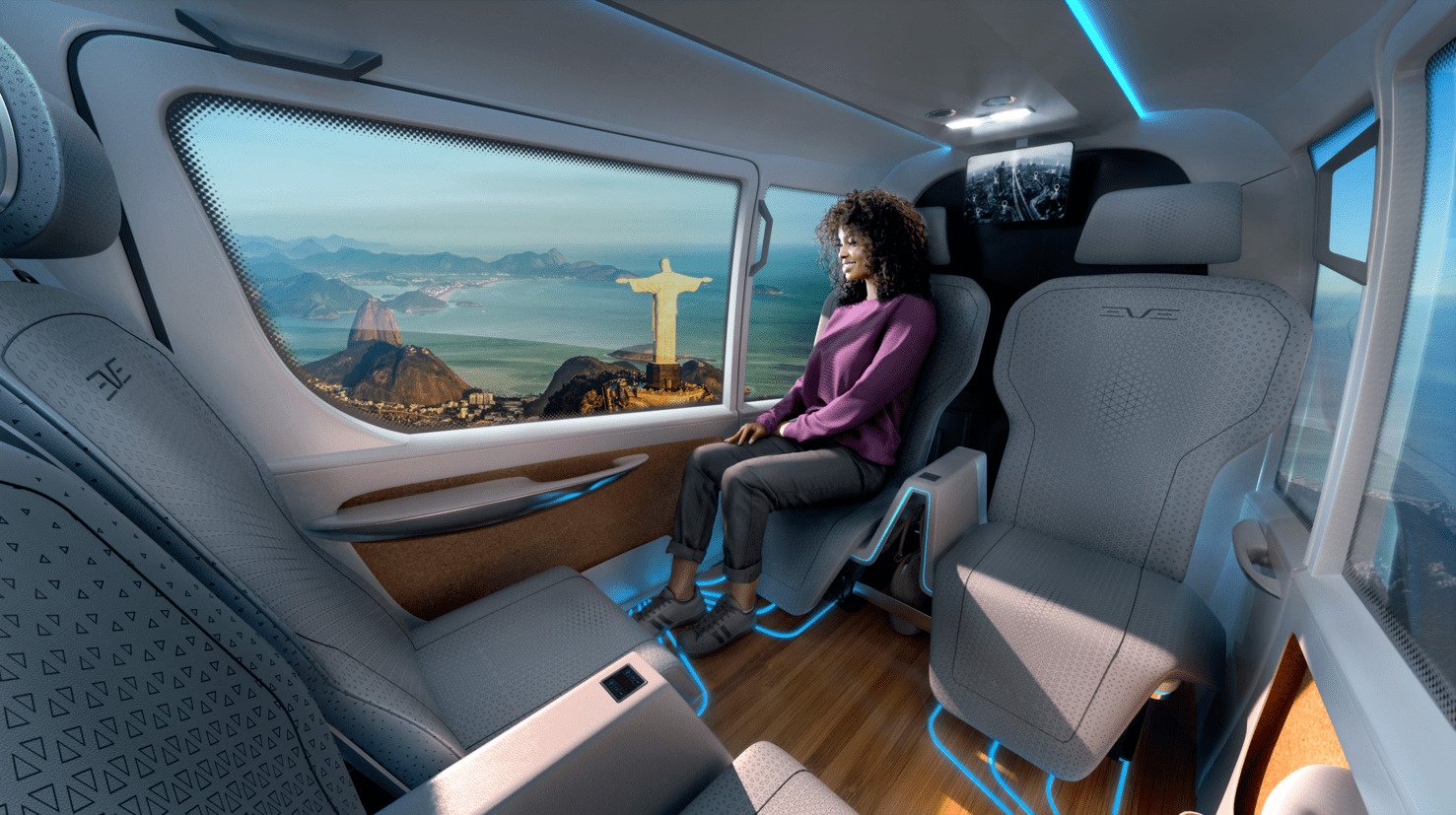Source: Embraer
Eve Urban Air Mobility, an Embraer spinoff, is cooperating with strategic partners and government entities for the development of a new concept of operations (CONOPS) for the future market of Urban Air Mobility (UAM) taking place in Rio de Janeiro. The objective is to convert the acquired knowledge into a working data and analysis framework to guide all operational aspects of the future of UAM.
Under Eve’s coordination, the initiative brings together ANAC (Brazil’s National Civil Aviation Agency) and DECEA (Brazil’s Department of Airspace Control) will work to assess the existing infrastructure and air traffic management (ATM) solutions to safely enable UAM operations through the development of upcoming technologies.
The substantial CONOPS collaboration includes partners such as Helisul Aviation, one of the largest helicopter operators in Latin America; Skyports, a company that designs, builds, and operates vertiports; Flapper, an independent platform for on-demand flights; EDP, one of the largest companies in the energy sector. Also included in this project are Beacon, an EmbraerX spinoff with a platform that connects the ecosystem of aviation maintenance services, and Atech, an Embraer Group company responsible for the development, implementation and support of air control system, and air traffic management (civil and military).
All parties will work on safely introducing and accelerating the UAM market’s growth in Brazil and will be supported by RIOgaleão, responsible for Rio de Janeiro’s Tom Jobim International Airport and Universal Aviation, one of the largest airport support companies, as well as Brazilian Association of General Aviation (ABAG, Associação Brasileira de Aviação Geral).
“We want to explore new and practical concepts to facilitate the safe introduction of the urban air mobility industry in Brazil. In this initial stage, we will describe the main characteristics and requirements of the ecosystem, from the perspective of the users, partners, entities and government departments involved,” said André Stein, Eve’s CEO. “According to concept evolution, we will conceive how to enable the purpose of democratizing urban air mobility in a safe, economical and accessible way.”
This first simulation will happen by the end of the year in Rio de Janeiro. Conventional helicopters will be used simulating Eve’s electrical vertical takeoff and landing (eVTOL) aircraft, also known in the market as EVA (Electrical Vertical Aircraft). Eve’s aircraft will be fully electric, community-friendly with low noise and zero carbon emissions. The aircraft is designed as a human-centric means of bringing people closer to their destinations efficiently and comfortably.
The development of UAM’s innovative solutions ensures safe and equitable access to urban airspace in an agnostic way by using an array of conventional helicopters, fixed-wing aircraft, and in the near future EVA. This collaborative work with UAM stakeholders will leverage operational capacity to offer a positive urban air experience.

